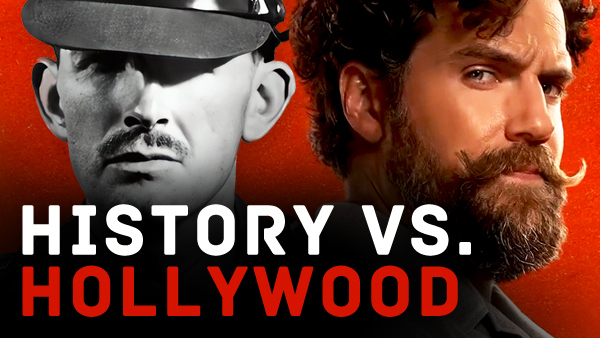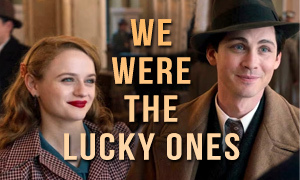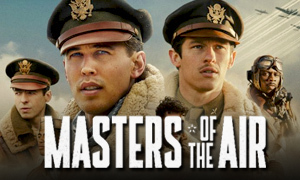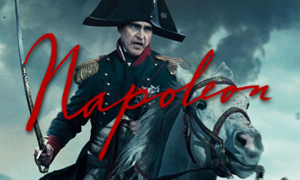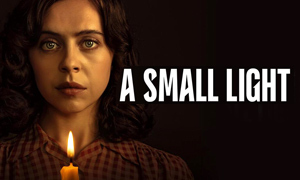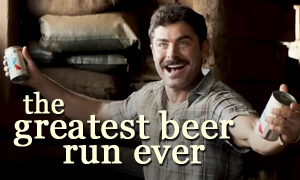Napoleon: History vs. Hollywood
Joaquin Phoenix
Born: October 28, 1974
Birthplace:
San Juan, Puerto Rico
Napoleon Bonaparte
Born: August 15, 1769
Birthplace: Ajaccio, Corsica
Death: May 5, 1821, Longwood, Saint Helena (torsades de pointes from treatment of ulcerating gastric carcinoma)
Bio: French Military Commander and Emperor | Painted by Jacques-Louis David, 1812
Vanessa Kirby
Born: April 18, 1988
Birthplace:
London, England, UK
Joséphine Bonaparte
Born: June 23, 1763
Birthplace: Les Trois-Îlets, Martinique, French Antilles
Death: May 29, 1814, Rueil-Malmaison, Kingdom of France (pneumonia)
Bio: First Wife of Napoleon and Empress of France | Painted by François Gérard, 1801
Tahar Rahim
Born: July 4, 1981
Birthplace:
Belfort, Territoire de Belfort, France
Paul Barras
Born: June 30, 1755
Birthplace: Fox-Amphoux, France
Death: January 29, 1829, Chaillot, France
Bio: French Politician and Leader of the Directory Regime
Rupert Everett
Born: May 29, 1959
Birthplace:
Burnham Deepdale, Norfolk, England, UK
Duke of Wellington
Born: May 1, 1769
Birthplace: Dublin, Ireland
Death: September 14, 1852, Walmer, Kent, England (stroke complications)
Bio: Military Commander who Defeated Napoleon at Waterloo
Ben Miles
Born: September 29, 1966
Birthplace:
Wimbledon, London, UK
Caulaincourt
Born: December 9, 1773
Birthplace: Caulaincourt, France
Death: February 19, 1827, Paris, France (stomach cancer complications)
Bio: French Military Officer and Close Advisor to Napoleon
Catherine Walker
Born: 1975
Birthplace:
Dublin, Ireland
Marie Antoinette
Born: November 2, 1755
Birthplace: Hofburg Palace, Vienna, Archduchy of Austria, Holy Roman Empire
Death: October 16, 1793, Place de la Révolution, Paris, French First Republic (execution by guillotine)
Did Napoleon come from nothing and conquer everything, as the film's tagline states?
No. The tagline for the film, which appears on the poster, states, "He came from nothing... he conquered everything." This is inaccurate. In an analysis posted to TikTok, historian Dan Snow reminded viewers that Napoleon's father, Carlo Bonaparte, was an aristocrat. Napoleon's family had descended from Tuscan nobles, and he grew up on the island of Corsica in his family's palatial ancestral home. His father became Corsica's representative in Louis XVI's court.
Napoleon's true story reveals that he also did not "conquer everything." Though he planned to, he never conquered Britain. The invasion was never carried out, despite a force assembling on the French coast. His campaigns in Egypt and Austria prevented the French from launching an invasion of Britain. The plans were aborted in 1802 with the signing of the Treaty of Amiens, which quelled the tensions between France and Britain. In the end, Napoleon conquered a lot, but he did not conquer everything.
Napoleon was largely victorious in battle, having won 53 of 60 battles fought by his forces. Notably, he suffered significant defeats in the Peninsular War (1807–1814) and the Battle of Waterloo (June 18, 1815).
Is Napoleon's age represented accurately in the film?
No. During our Napoleon fact-check, we discovered that actor Joaquin Phoenix was 47 at the time the Ridley Scott movie was filmed in 2022. This makes the actor decades older than Napoleon Bonaparte was during many of the events that are depicted in the film. For example, Napoleon became a general when he was in his 20s. He married Joséphine in 1796 when he was 26. He led his military campaign to seize Egypt when he was approximately 29 years old. Napoleon died in 1821 when he was 51, just four years older than Joaquin Phoenix was at the time of filming.
Was Marie Antoinette defiant and fearless at the time of her execution?
No. French-born historian Dr. Estelle Paranque, a professor of modern history at Northeastern University, told BBC Radio 4's Today program that Marie Antoinette was not "fearless and a bit feisty" just prior to her 1793 execution by guillotine. Rather, Antoinette, the former Queen who had been overthrown during the French Revolution along with her husband, King Louis XVI, was "extremely sad and vulnerable" at the time. Louis XVI had been guillotined eight months prior. Antoinette had been found guilty of treason and had lost custody of her youngest son, who reportedly had been forced to accuse her of incest and sexual abuse prior to her trial. Paranque claims that, in reality, Antoinette was troubled and scarred by the allegations made by her son.
Portrayed by Irish actress Catherine Walker, the historian Paranque says that the Napoleon movie's depiction of Marie Antoinette as confident and strong-willed is not accurate in terms of her personality traits. The Daily Mail pointed out that she also did not still have unrestrained, flowing curly hair at the time of her execution. In reality, the despondent former French queen had her hair shorn by her captors. Unlike what's seen in the film, her executioners did not have to pull her hair away from her neck prior to dropping the blade of the guillotine. In addition, the movie shows her in a black dress, the color she had wanted to wear, but in real life, she was forced to wear a white dress, the color donned by widowed French queens.
Did Napoleon attend the execution of Marie Antoinette?
No. In fact, he was roughly 520 miles away when Marie Antoinette was publicly executed by guillotine at the Place de la Concorde in Paris, France on October 16, 1793. Napoleon was on the other side of the country commanding forces at the Siege of Toulon, where republican forces captured the city and forced the British to evacuate.
Did Napoleon keep the cannonball that was in his dead horse?
No. At the Siege of Toulon, the Ridley Scott movie depicts Napoleon (Joaquin Phoenix) reaching inside his dead horse to retrieve the cannonball that killed it. According to Professor Michael Broers, a historical advisor on the film, the scene never happened in real life. Napoleon did have a number of horses killed under him in battles, but there's no record of him ever doing anything as grotesque as what's seen in the movie after they were killed. -Time Out
Is Napoleon's wife Joséphine depicted accurately?
It's true that Joséphine, who is portrayed by Vanessa Kirby in the movie, was more worldly and sexually experienced than Napoleon. He admitted this in his memoirs. She was also six years older than Napoleon (unlike the movie in which actor Joaquin Phoenix is 14 years older than Vanessa Kirby). Joséphine had been previously married and had two children, a boy and a girl, to her first husband, Alexandre, Viscount of Beauharnais, who died by guillotine in 1794 during the Reign of Terror. Joséphine did cheat on Napoleon and it did make the newspapers. He was later unfaithful to her. He had their marriage annulled in 1810 because she was unable to bear him children. He married Marie Louise of Austria the same year and together they had a son.
The movie takes some liberties with regard to Joséphine's appearance. As Professor Michael Broers told Time Out, Joséphine was known to have bad teeth that "were almost non-existent from chewing sugar cane when she was in the Caribbean." As a result, she kept her mouth closed most of the time.
Did Napoleon's forces shoot the Pyramids during their campaign in Egypt?
No. Despite the film showing his troops firing a cannon at the top of the Pyramids and striking one of them, historian Dan Snow said that the scene never happened in real life. He commented that not only did Napoleon's forces never fire at the Pyramids, hitting the top of them would have been near impossible from where they are standing in the scene.
"We are seeing this 12-pound cannon firing at maximum elevation. Can it hit the top of the Pyramids from where they are standing? I very much doubt that," he remarked in a Napoleon fact-check video posted to TikTok. Furthermore, he points out that the Battle of the Pyramids did not take place at the base of the Pyramids, even if it is a picturesque backdrop for a movie scene.
During an interview with Time Out, Professor Michael Broers, an expert on Napoleon and a historical consultant on the film, said that he pointed out the inaccuracy of the scene to director Ridley Scott. "I said to Ridley, 'Come on, shoot the top of the pyramids?'", said Broers, "but he replied, 'Well, you laughed, didn't you?' I learned that we weren't making a documentary, we were making a movie."
One myth that has gained traction over the years is that Napoleon's soldiers shot the nose off the Sphinx. This is false for several reasons, including the fact that significant damage to the sphinx had been documented long before Napoleon's expedition, both in writing and in sketches. Also, the notion that his forces would intentionally damage the Sphinx makes little sense given that one of the goals of the mission was to conduct the first scientific study of Egypt and its artifacts.
Did Napoleon really say to the British ambassador, "You think you're so tough because you have boats!"
No. In the Ridley Scott movie, an angry Napoleon (Joaquin Phoenix) warns the British ambassador, "You think you're so tough because you have boats!" Oxford University Professor Michael Broers, an advisor on the film, told Time Out that the real Napoleon never uttered those words. Broers said that while the line in the movie is fictional, it does resemble something Napoleon said in real life. During an interaction with British Ambassador William Wickham, Napoleon grew upset and almost revealed that he had an army of 200,000 men.
Did Napoleon lead a cavalry charge?
No. In the Ridley Scott film, the French emperor is shown charging into battle on his horse. Historian Dan Snow pointed out that while he did obviously order cavalry charges and was present when battles unfolded, the scene contradicts the Napoleon true story because he never led such a charge.
Did Napoleon and the Duke of Wellington meet after Waterloo?
No. The film depicts battlefield rivals Napoleon (Joaquin Phoenix) and the Duke of Wellington (Rupert Everett) sitting down in the cabin of a large warship for a meeting after the Battle of Waterloo. There is clearly mutual respect for one another, but unfortunately, no such meeting ever took place in real life. According to Professor Michael Broers, Napoleon never met the Duke of Wellington.
Have the French taken issue with the fact that Ridley Scott's Napoleon movie was shot in English?
Yes. One of the movie's obvious historical inaccuracies is that the actors, including Joaquin Phoenix and Vanessa Kirby, who portray Napoleon and Joséphine, are speaking English throughout the film. Making this even more awkward is that Phoenix is speaking with his American accent and Kirby her English accent. French GQ pointed out that there was something "deeply clumsy, unnatural and unintentionally funny" in watching French fighters in 1793 shouting "Vive la France" with American accents.
What do the French think of Ridley Scott's Napoleon movie?
Le Devoir, a Canadian French-language newspaper, described the film's version of Napoleon as a "petulant man-child who doesn't really seem to know what he's doing." French media critics panned the film as being "boring" and "deeply clumsy." French newspaper Le Figaro criticized the movie for depicting the French emperor as a "sentimental brute" who is "quick to shed a tear." In Le Point magazine, biographer Patrice Gueniffey described the film as being a "very anti-French and very pro-British" revision of history.
Has director Ridley Scott responded to the criticisms regarding Napoleon's historical accuracy?
When confronted by claims that his film isn't truthful with regard to its depiction of Napoleon Bonaparte, Ridley Scott told the New Yorker that those picking it apart should "get a life." He said that there are in the range of 400 books written about Napoleon. "Maybe the first one was the most accurate, the next one is already doing a version of the author." As you get to book 399, "there's a lot of speculation."
Scott admitted that he was in fact speculating at times but that he stuck closely to the facts that are known about Napoleon. Responding to his critics, he said, "My answer to them is, 'How do you know? Were you there?'" Historian Guy Walters pointed out that the problem with this excuse is that it "negates the whole pursuit of historical knowledge, and basically gives you a pass to make it all up."
It's not hard to imagine that director Ridley Scott likely had similar reactions to those picking apart the errors in his other movies based on true stories, including The Last Duel, House of Gucci, and Gladiator, the latter of which also starred Joaquin Phoenix when he was at an age (26) that would have made him a better fit to depict Napoleon.
The problem with Scott's reaction is that unfortunately, many will watch Napoleon without ever learning the real history. Thus, articles that address where the film deviates from the facts and veers into fiction are important, as is understanding that the film is first and foremost a piece of entertainment, not a documentary.

